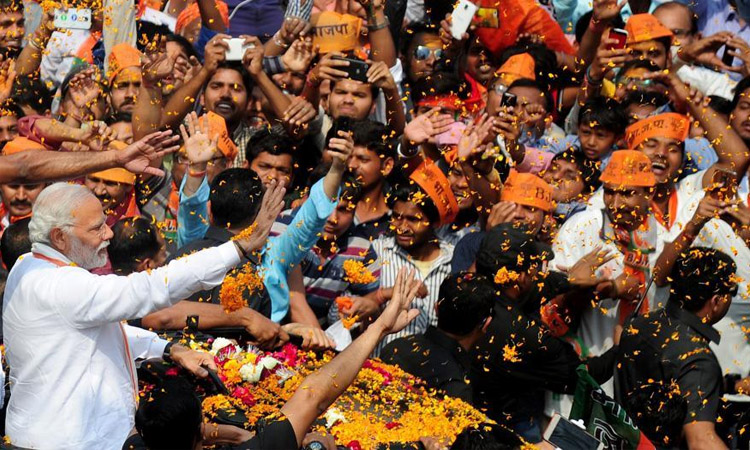Currently in India, the 2019 Lok sabha elections are taking place. With just few days left for the voting to be over, every Indian citizen is looking forward to 23th May, the day when the election results will be declared. However, because of the various surveys and exit polls, people have some idea of who might win the elections.
Read more: Rahul gandhi gets a greenlight from SC for the upcoming 2019 Lok Sabha Elections
Modi wave strong across nation
The surveys and opinion polls conducted ahead of 2019 lok sabha election present a picture that would please the members of Bhartiya Janta Party. The BJP-led National Democratic Alliance is likely to continue being in power for the next five years. The major reason behind this victory is the Modi wave that is even now going strong after these past five years. While people have openly shown their disappointment towards the present government, the initial survey have highlight that people would still prefer a Modi led government over any other party.
Read more: More than 100 JeM terrorists killed in Balakot airstrike: A report
Demonetization, the surgical strike and the recent response to the Phulwama attack are major reasons as to why people are ready to put their faith in Modi led government once again. But, unlike the last time, the expected winning margin of parliament seats might see a significant slip.
Read more: Excellent media marketing strategies driving the 2019 election’s campaigns
The Opposition stands United against Modi
The Surveys have highlighted a major increase in the voting numbers, resulting in a good percentage increase in vote shares for Congress and BJP. Despite all these factors, BJP is bound to lose some parliament seats.
Read more: Ban of indian films in pakistan may boost piracy
It is reported that in several key states, the opposition is making new alliances and is uniting against the present Modi-led government. According to the surveys BJP and NDA might win the 2019 Lok sabha elections, but their parliament seat tally is likely to decrease by at least by 50 seats. Hence, unlike in the 2014 lok sabha elections, this time, they might have to settle for lower number of parliament seats.
